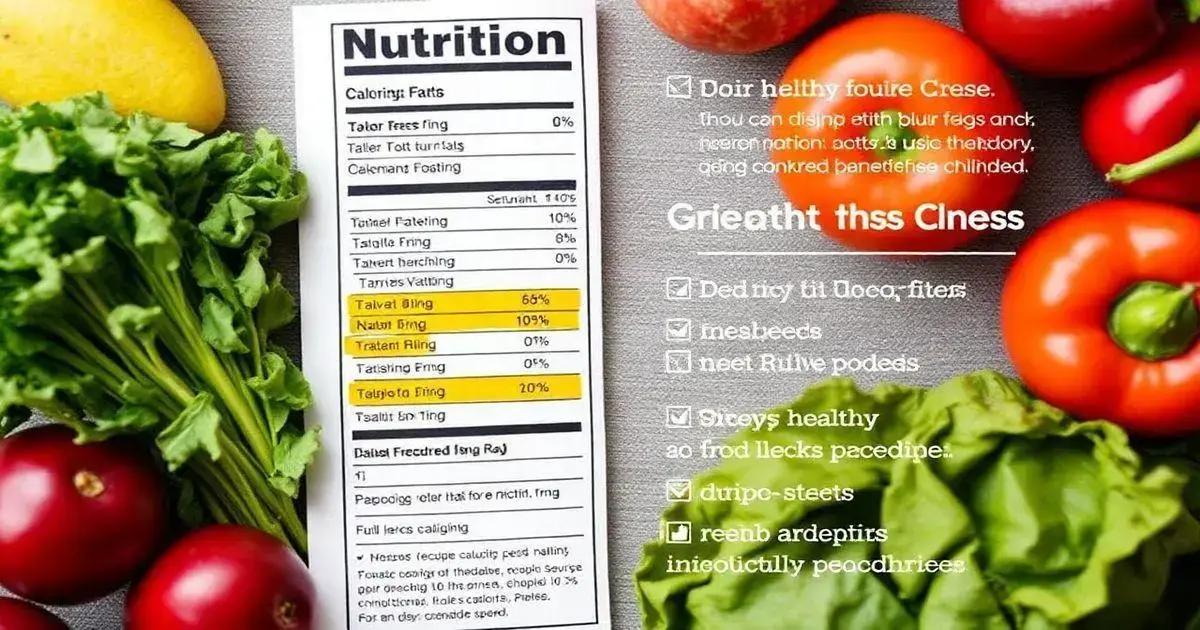To manage weight effectively with calorie awareness, track your calorie intake, understand food choices, and create a sustainable eating plan that includes balanced meals, allows for occasional treats, and emphasizes whole foods.
Managing weight effectively requires a keen understanding of calorie awareness. By being mindful of the calories you consume and burn, you can make informed decisions about your diet and exercise routines. This article aims to explore the intricate relationship between calorie intake and weight management. We will delve into the benefits of tracking calories, practical tips for monitoring your intake, and how to create a sustainable eating plan.
Understanding Calorie Awareness

Calorie awareness is the understanding of how many calories are in the foods we eat and how these calories affect our weight. It involves recognizing the energy our bodies need to function and the energy we intake through food and drinks. Understanding this balance is crucial for effective weight management.
What Are Calories?
Calories are units of energy. They come from the foods we consume, including carbohydrates, proteins, and fats. Each type of macronutrient provides a different amount of calories per gram: carbohydrates and proteins provide 4 calories per gram, while fats offer 9 calories per gram. This means that foods high in fat typically contain more calories.
The Importance of Calorie Awareness
Being aware of calorie content can help you make better food choices. For instance, choosing a fruit over a sugary snack can decrease calorie intake while providing essential nutrients. Understanding calories enables you to maintain, lose, or gain weight more effectively.
How to Calculate Your Daily Caloric Needs
Your body requires a specific number of calories each day to maintain weight, which can vary based on factors like age, sex, activity level, and overall health. You can use online calculators to estimate your daily calorie needs. This number is your maintenance calories—calories needed to keep your weight steady. To lose weight, you should consume fewer calories than this number, and to gain weight, you should consume more.
Reading Nutrition Labels
Nutrition labels are essential tools for understanding calorie content. They provide detailed information on serving sizes, calories per serving, and the breakdown of macronutrients. Familiarizing yourself with how to read these labels can promote better choices and help you stay within your daily caloric limits.
Benefits of Tracking Calories
![]()
Tracking calories has several important benefits that can help you achieve your weight management goals. By keeping a close eye on what you eat and how much, you gain valuable insights into your dietary habits.
Awareness of Food Choices
One major benefit of tracking calories is that it makes you more aware of your food choices. When you log everything you eat, you start to see patterns in your diet. This awareness allows you to identify unhealthy options and replace them with better choices.
Encourages Mindful Eating
Tracking calories promotes mindful eating. Instead of eating on autopilot, you become active in your food choices. This can lead to enjoying meals more and reducing overeating. By paying attention to portion sizes and calorie counts, you can feel more satisfied with smaller amounts of food.
Helps Set and Achieve Goals
Another advantage of tracking calories is that it helps in setting and achieving specific dietary goals. Whether you want to lose, gain, or maintain weight, having a clear number of calories to aim for can keep you on track. You can adjust your intake based on your progress, making it easier to reach your objectives.
Provides Accountability
Having a record of your caloric intake fosters a sense of accountability. When you see your food choices laid out, you may think twice before indulging in a high-calorie snack. This can lead to better decision-making and support your overall health goals.
Practical Tips for Monitoring Intake

Monitoring your calorie intake can be straightforward and effective with some practical tips. Here are some strategies to help you stay on track:
1. Use a Food Diary
Keeping a food diary is a great way to monitor what you eat. Write down everything you consume throughout the day. This can help you see where most of your calories come from and identify any unnecessary snacks or large portions.
2. Leverage Technology
Consider using apps or websites designed for tracking calories. Many of these tools allow you to scan barcodes, calculate calories, and even provide nutritional information. They make logging your meals quick and easy.
3. Measure Portion Sizes
Be sure to measure your portion sizes. Using measuring cups or a food scale can help you understand how much you are actually eating. This practice prevents underestimating the calories in your meals.
4. Plan Your Meals
Meal planning is an effective way to control your calorie intake. By preparing your meals in advance, you can choose healthier options and avoid last-minute unhealthy choices. This strategy also helps in sticking to your calorie goals.
5. Stay Hydrated
Sometimes, we confuse thirst with hunger. Make sure to drink enough water throughout the day. Staying hydrated can help you feel full and may prevent unnecessary snacking.
Creating a Sustainable Eating Plan

Creating a sustainable eating plan is essential for maintaining weight in the long run. Here are effective strategies to develop a plan that works for you:
1. Balance Your Meals
To create a sustainable eating plan, focus on balancing your meals. This means combining macronutrients—carbohydrates, proteins, and fats. Eating a mix helps keep you full and satisfied while providing the energy you need.
2. Include Plenty of Whole Foods
Whole foods such as fruits, vegetables, whole grains, lean proteins, and healthy fats should be the foundation of your meals. These foods are nutrient-dense and generally lower in calories, helping you stay within your calorie limits while still feeling full.
3. Allow for Flexibility
It’s important to allow flexibility in your eating plan. Restricting yourself too much can lead to cravings and binges. Allow yourself occasional treats, which can keep you motivated and satisfied with your diet.
4. Set Realistic Goals
When creating an eating plan, set realistic goals for yourself. Aim for small, achievable changes rather than drastic changes that are hard to maintain. This could mean adding an extra serving of vegetables to your meals or swapping out sugary drinks for water.
5. Monitor Your Progress
Regularly review your eating plan and monitor your progress. Adjustments may be necessary based on your weight, energy levels, and health goals. This flexibility makes the eating plan sustainable over time.
In Conclusion: Mastering Weight Management Through Calorie Awareness
Understanding how to manage weight with calorie awareness is key to achieving your health goals. By tracking your calorie intake, you can gain awareness of your eating habits and make informed decisions about what you consume.
Implementing practical tips for monitoring your intake and creating a sustainable eating plan helps ensure that you’re not only mindful of calories but also enjoying your meals.
With these strategies, you can establish healthier habits that will last a lifetime, allowing you to maintain your desired weight and improve your overall well-being.
Embrace calorie awareness and take control of your health journey today!
FAQ – Frequently Asked Questions about Managing Weight with Calorie Awareness
What is calorie awareness?
Calorie awareness is the understanding of how many calories are in the foods you eat and how they affect your weight.
How can tracking calories help me lose weight?
Tracking calories helps you become more aware of your food choices and portion sizes, making it easier to maintain a calorie deficit for weight loss.
What are some practical tips for monitoring calorie intake?
Use a food diary, leverage technology like calorie-tracking apps, measure portion sizes, plan meals in advance, and stay hydrated to monitor your intake effectively.
How do I create a sustainable eating plan?
To create a sustainable eating plan, focus on balancing your meals, including whole foods, allowing for flexibility, setting realistic goals, and regularly monitoring your progress.
Is it okay to indulge in treats while managing my weight?
Yes, allowing yourself occasional treats can help you stay motivated and satisfied with your diet, making it easier to stick to your eating plan.
Why is it important to monitor my progress?
Monitoring your progress helps you identify what works for you and make necessary adjustments to your eating plan, ensuring long-term success in weight management.













